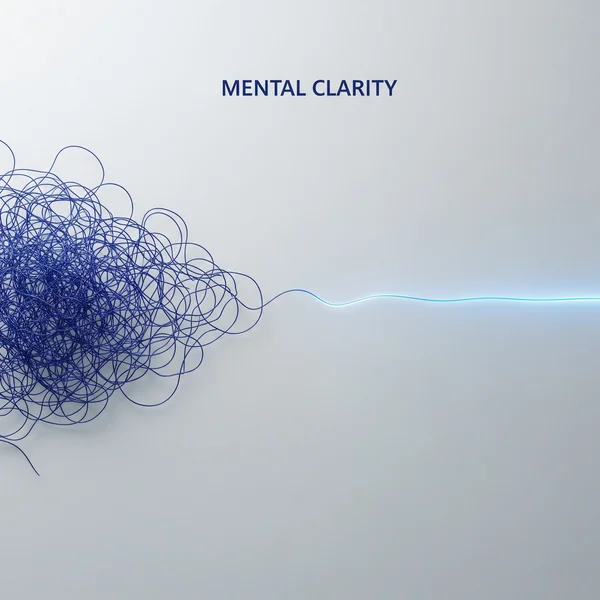What is the GAD-7 Test? A Complete Guide
Feeling on edge, struggling with relentless worry, or finding it hard to relax? You're not alone. In our fast-paced world, these feelings are increasingly common. But how do you know if it's everyday stress or something more? What is the GAD-7 test? For many, it's the first step toward clarity. This simple tool offers a reliable way to measure the severity of anxiety symptoms. If you're curious about your own anxiety levels, you can take the free GAD-7 test on our site for immediate, confidential results.

What Exactly Does GAD-7 Stand For?
Understanding the name is the first step to understanding the tool's purpose. Each part of the acronym "GAD-7" carries a specific meaning, revealing its function as a precise and efficient screening instrument.
Generalized Anxiety Disorder: The Core Concept
The "GAD" in GAD-7 stands for Generalized Anxiety Disorder. This is a specific type of anxiety disorder characterized by persistent and excessive worry about various things. The test is specifically designed to screen for the hallmark symptoms of GAD, such as feeling nervous, being unable to control worrying, and experiencing restlessness.
Why "7-Item"? The Power of Brevity
The "7" simply means the questionnaire consists of seven questions. This brevity is one of its greatest strengths. The creators, Drs. Spitzer, Kroenke, and Williams, expertly distilled the most indicative symptoms of anxiety into just seven items, making the test incredibly quick and easy to complete, usually in under two minutes.
A Screening Tool, Not a Diagnostic Test
This is the most critical distinction to understand. The GAD-7 is a powerful screening tool designed to identify the potential presence and severity of anxiety symptoms. However, it is not a diagnostic test. A formal diagnosis can only be made by a qualified healthcare professional after a comprehensive evaluation. Think of the GAD-7 test as a thermometer for your emotional temperature—it tells you if you have a "fever," but it doesn't tell you the cause.
The GAD-7 Questionnaire: A Question-by-Question Look
So, what does the GAD-7 questionnaire actually ask? The seven questions are carefully crafted to assess how often you have been bothered by specific symptoms over the last two weeks. This timeframe is crucial as it focuses on your recent and current state of mind.
Analyzing the 7 Key Symptoms of Anxiety
The questions cover the core emotional and physical symptoms of anxiety. They inquire about:
- Feeling nervous, anxious, or on edge.
- Not being able to stop or control worrying.
- Worrying too much about different things.
- Trouble relaxing.
- Being so restless that it is hard to sit still.
- Becoming easily annoyed or irritable.
- Feeling afraid as if something awful might happen.
The Four-Point Frequency Scale Explained
For each question, you select an answer based on frequency:
- 0: Not at all
- 1: Several days
- 2: More than half the days
- 3: Nearly every day
This scale allows for a nuanced measurement of symptom severity, which is then totaled to produce your score.
The Science and History Behind the GAD-7
A tool is only as good as the science that supports it. The GAD-7 is not just a random list of questions; it's a scientifically validated screening tool that is trusted by clinicians and researchers worldwide.

Developed by Drs. Spitzer, Kroenke, and Williams
The GAD-7 was developed in 2006 by a team of prominent researchers: Dr. Robert L. Spitzer, Dr. Kurt Kroenke, and Dr. Janet B.W. Williams. Their work was published in prestigious medical journals, establishing the test's credibility from the outset.
Key Validation and Reliability Studies
Numerous studies have confirmed the GAD-7's high reliability (it produces consistent results) and validity (it accurately measures what it's supposed to measure). It has been shown to be a robust tool for screening for GAD as well as other common anxiety disorders like panic disorder and social anxiety. This scientific backing is why the GAD-7 questionnaire is a staple in modern healthcare.
Who Should Use the GAD-7 Test?
The GAD-7 is a versatile tool with a broad range of applications, useful for individuals and professionals alike.
For Personal Insight and Self-Monitoring
If you've been wondering about your anxiety, the GAD-7 provides a private, accessible starting point. It can help you put a number to your feelings, track your symptoms over time, and decide if it's time to seek professional support.
For Primary Care and Mental Health Professionals
Clinicians use the GAD-7 for rapid anxiety screening during routine appointments. It helps them quickly identify patients who may need further assessment, initiate important conversations about mental health, and monitor treatment progress.
Understanding the Limits: What GAD-7 Can't Do
To use the GAD-7 responsibly, it's essential to understand its limitations.
It's a "Snapshot," Not the Whole Picture
Your score reflects your feelings over the past two weeks. It's a valuable snapshot, but it doesn't capture the full context of your life, your coping mechanisms, or your overall mental health history.
Why It Cannot Replace a Professional Diagnosis
Anxiety is complex. A high score on the GAD-7 strongly suggests that a conversation with a doctor or therapist is a good idea, but only a professional can consider all factors to provide an accurate diagnosis and create a tailored treatment plan.
Your Key Takeaways and What to Do Next
The GAD-7 is a fast, free, and scientifically validated tool for measuring anxiety symptoms. It empowers you with objective insight into your emotional well-being. It's the perfect first step for anyone looking to understand their anxiety better.

Are you ready to gain clarity? The journey to understanding begins with a single step. Take the free, confidential GAD-7 test now and see what your score reveals.
Frequently Asked Questions About the GAD-7
Here are answers to some common questions about the test.
Is the GAD-7 test accurate?
Yes, the GAD-7 is considered a highly accurate and reliable screening tool. Studies show it has strong validity for identifying symptoms of Generalized Anxiety Disorder and other anxiety conditions. However, its accuracy is for screening, not for formal diagnosis.
How long does it take to complete the GAD-7?
It is incredibly brief. Most people can complete the seven questions in less than two minutes, making it one of the most efficient tools available.
Can I diagnose myself with a GAD-7 score?
No. This is a critical point. A score may suggest the presence and severity of anxiety symptoms, but it cannot diagnose an anxiety disorder. It's a starting point for a conversation with a healthcare professional, not a conclusion.
How often should I take the GAD-7 test?
This depends on your goal. If you're starting a new wellness practice (like meditation or exercise), you might take it before and after a few weeks to track changes. If you are in therapy, your provider may suggest a specific schedule. For personal insight, taking it whenever you feel your anxiety levels have changed can be helpful. Ready to get your first baseline? Start the GAD-7 test here.